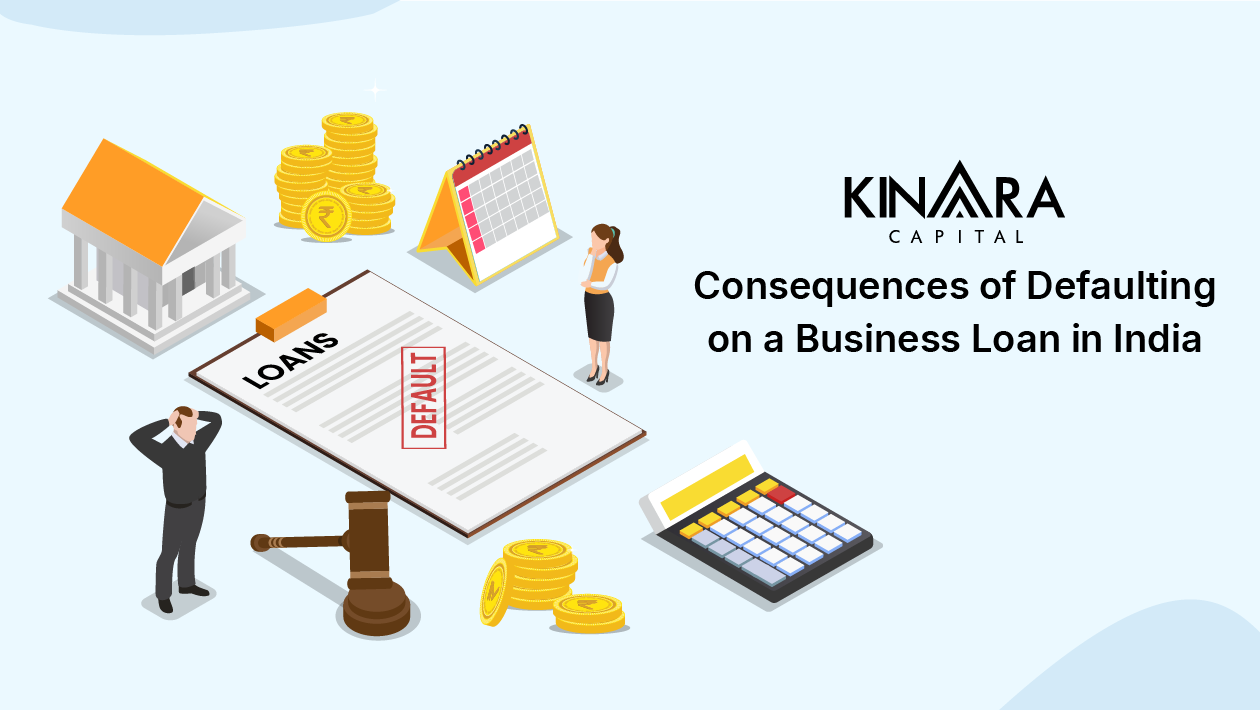
Defaulting on a business loan in India can have serious repercussions, affecting not just your creditworthiness but also the future of your enterprise. A loan default occurs when a borrower fails to make the required payments on time, leading to a default loan status. The loan default consequences are far-reaching, including legal action, loss of collateral, and a damaged credit score, making it difficult to secure financing in the future. Understanding these risks is crucial for any business owner to safeguard their financial health and ensure the continuity of their operations.
A loan default occurs when a borrower fails to meet the repayment terms of a loan. For businesses, particularly those relying on unsecured business loan lenders, defaulting can have severe consequences. If you’ve defaulted on payments, the lender may initiate legal proceedings, resulting in the seizure of assets or severe penalties. An unsecured loan default in India can also damage your credit score, making it difficult to obtain future financing. Additionally, your business’s reputation may suffer, impacting relationships with suppliers and partners. Understanding these effects is crucial to mitigating risks associated with loan defaults.
Wondering what happens if an unsecured loan is not paid in India? Defaulting on an unsecured business loan can lead to serious consequences that affect both your personal and professional financial health.
Before your loan goes into default, there are several strategies you can adopt to avoid the severe default loan consequences:
By implementing these strategies, you can better manage your financial obligations and reduce the risk of your loan going into default. Planning and communication with your lender are key to avoiding the negative impacts associated with a default on payments status.
After a loan goes into default, taking prompt action can help mitigate further damage. Here are strategies to follow:
Taking these actions can help you manage the aftermath of a loan default and reduce the long-term impact on your financial health.
In conclusion, addressing a loan default promptly is essential to prevent long-term damage to your financial stability. By taking proactive steps such as negotiating with your lender, seeking professional advice, and rebuilding your credit, you can manage the challenges that arise after defaulting on a loan. Avoiding further borrowing and liquidating non-essential assets can also help stabilize your financial situation. With careful planning and responsible actions, it’s possible to navigate through the difficulties of a loan default and work towards a more secure financial future.
Choose Kinara Capital for your msme loan because we prioritise your success with streamlined processes, quick approvals, and personalised financial solutions tailored for your leather manufacturing business. Competitive interest rates, less documentation, and flexible payment options set us apart. Enjoy a hassle-free experience with our expert guidance and proactive customer service.
You could be classified as a deliberate defaulter if you intentionally avoid repaying your loan despite having the financial means to do so, divert loan funds for unintended purposes, or misrepresent financial information to obtain the loan. Such actions indicate a willful intent to deceive the lender, leading to severe legal and financial consequences.
A business owner can be legally compelled to pay the company’s debts if they provided a personal guarantee, committed fraud, or if the business structure, like a sole proprietorship, makes them personally liable.
Small businesses unable to repay their debts may face bankruptcy, liquidation of assets, or legal actions by creditors. This can lead to the closure of the business, loss of personal assets (if personally liable), and damage to credit scores.
Defaulting on a business loan can severely impact your personal finances. It can lower your credit score, making it harder to secure future loans, lead to asset seizures if you provide personal guarantees, and create long-term financial stress.
Depends on a lot of other factors but yes, you can negotiate with your lender to avoid default. Options may include adjusting the loan terms, extending the repayment period, or reducing interest rates. Early communication with your lender increases the chances of reaching a favorable agreement.
